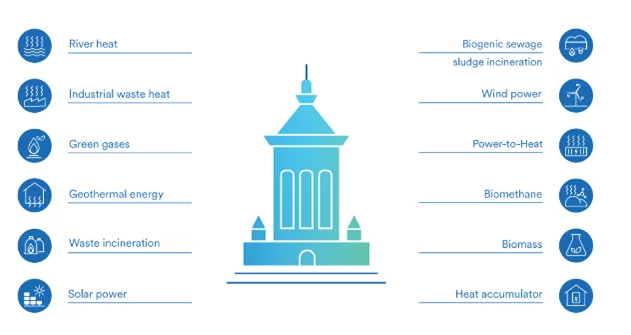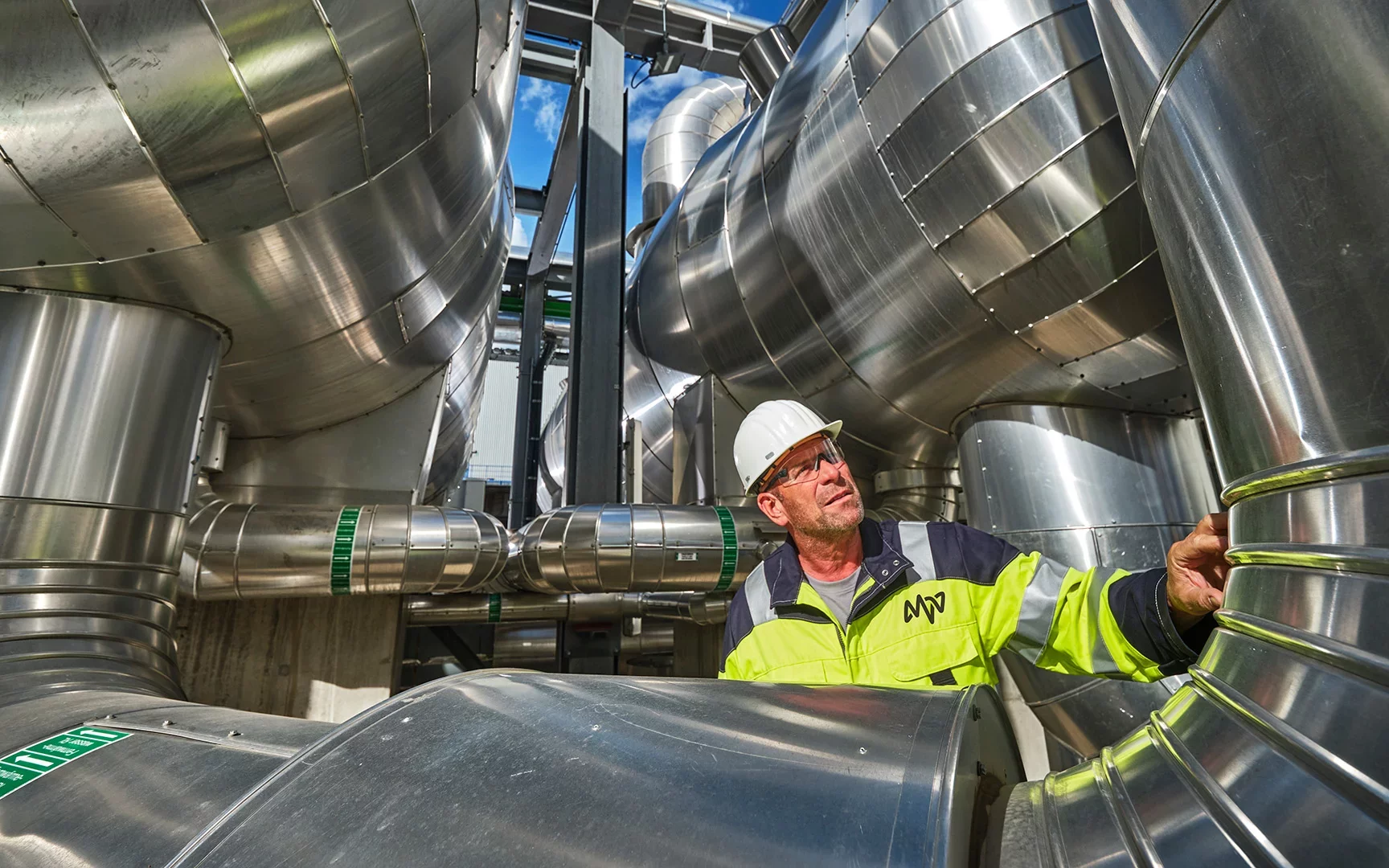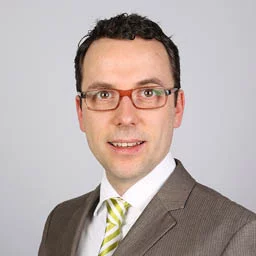The heat transition is possibly the most important key to climate neutrality
As it heads for climate neutrality by 2045, Germany plans to put its heat supply on a new footing. Particularly in large built-up areas, district heat is the core lever to supply buildings in future with climate-friendly heat in line with legal requirements. To this end, at least 50 percent of district heat should be generated in climate-neutral ways by 2030. At MVV, we are showing that the heat transition can be implemented even faster. By 2030, we will make our district heat generation in Mannheim, the region, and Offenbach 100 percent green. We will thus go well beyond the 50 percent requirement laid down by the Federal Government. Kiel is set to follow by 2035, once the innovative gas-fired CHP plant there is operated with hydrogen. By then, our district heat will by 100 percent green across the whole of the Group.
Example: heat transition at Mannheim location
We view our heat transition activities at the Mannheim location as providing the blueprint for the whole process of making district heat generation green. Here, we can already cover 60 percent of heat demand with district heat.
We are building on this head start in making our district heat supply green. In 2020, we completed the first expansion stage for the heat transition in Mannheim by connecting our energy from waste plant. In October 2023, we linked up our river heat pump on the Rhine to the district heat grid. This marks the first milestone in the second stage of expansion. We will complete this stage of our heat transition in Mannheim in 2024, once we have connected our phosphorous recycling plant and our biomass CHP plant to the district heat grid. By then, we will already be able to cover up to 60 percent of heat demand from households and businesses in Mannheim with climate-friendly heat. After that, we will start work on the third stage for reaching 100 percent green heat. This involves green technologies such as geothermal heat, additional river heat pumps, using further industrial waste heat, electrode boilers and biomethane CHP plants.

We are implementing the heat transition
We are working hard to achieve 100 percent green district heat at our other locations as well. By the end of the decade, Energieversorgung Offenbach will replace its existing hard-coal-fired CHP plant by drawing on alternative generation sources, such as waste heat from data centres, river heat pumps, like that already in operation in Mannheim, biomass and biomethane, power-to-heat and optimised use of its existing energy from waste plant.
On its Course to Climate Neutrality, Stadtwerke Kiel is also pursuing a bespoke pathway, in this case with a target date of 2035. Among other instruments, it will be deploying large-scale heat pumps and geothermal energy. And it will refit the gas-fired CHP plant in Kiel to operate with hydrogen and thus make it fit for a long-term future.
In addition, we are expanding our range of decentralised heat solutions, i.e. with heat pumps or biomass heat systems, to enable those customers who cannot be connected to a district heat grid to have their own climate-friendly heating as well. The Federal Government has also entrusted local authorities with implementing the heat transition. For Mannheim, we have specially developed a “Digital Twin” which provides simulations of various scenarios. This way, we can work together with local authorities in future to find out what the optimal heat solution might look like for the local population and then put this into practice.
Heat grids also have to be prepared for this pathway to renewable heating. All of Germany’s heat grids are to be climate neutral by 2045. This calls for a full conversion of our infrastructure. That is why we are increasing the density of existing grids at MVV and building targeted new infrastructure to make as broad-based use as possible of the potential offered by green heat. We are eliminating parallel grid structures where possible. And we are strengthening electricity grids to prepare them for growing demand, especially from heat pumps.




